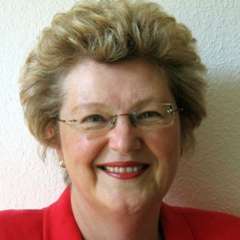A little boy dressed in a bright green hoodie rolls in on his kickboard, earphones and all. He opens a cupboard. Among many fur coats, he takes out a violin case, sits down and starts playing the theme from Fiddler on the Roof. Soon, knocking is heard from within the cupboard. This time, Tevye the milkman wants to come out – and behind him, the entire population of the east European shtetl follows him breaking into the first song and dance number, a dizzy expression of joy. The boy keeps popping up throughout the piece, playing a few notes of the theme, as a reminder that tradition from yesteryear does live on today, no matter what blows of destiny happen in between.
Australian-born (and recently turned German citizen) stage director Barrie Kosky chose this piece to celebrate the 70th anniversary of the Komische Oper Berlin because of its special significance. Walter Felsenstein’s production ran for 506 performances from 1971 to 1988, making it an integral part of its history. For Kosky, the piece is personally relevant because his grandfather emigrated from a similar east European shtetl to Australia.
The subject – a family having to leave its home because of persecution – is as topical today as it ever was, especially in multicultural Berlin, which boasts of more than 35% of its population being foreign-born and has seen almost 40,000 asylum seekers of different ethnic peoples arrive in 2016 alone. For Kosky, it does not really matter if these events take place within the context of any faith – Jewish, Christian, Muslim – because the problems are always the same. The conflict takes place between the socio-economic reality and the traditions, dreams and emotions that drive us in forming our lives. Everyone experiences this dichotomy, no matter what religion or ethnic group we belong to.
Kosky stages the story of the family with five daughters – with a father trying to arrange marriages that will offer them a better life, but each headstrong daughter deciding on a partner of her own choice – in a realistic wintry setting. It’s all about tradition, always proclaimed here with an exclamation point. Tevje does not regard the rules and commandments of his faith as a restriction, but as a support, as an aid to coping with laborious everyday life.
Stage designer Rufus Didwiszus makes use of the turntable on which the atmosphere of a poor but cosy home environment is created. This disappears completely when a cold, empty snowy landscape reflects the harsh reality of having to forcibly relocate. Klaus Bruns' costumes have the men wearing prayer shawls and women scuffed long dresses. Choreographer Otto Pichler creates a unique blend of traditional East European dances, which add tremendous verve to the staging with thrilling mass scenes and the solo dancers whirling across the stage. Applause, too, to the Chorus of the Komische Oper, vocally and dramatically excellent.
Tall and thin, well-known stage actor Max Hopp embodies a Tevye who finds solace in communicating with his God, is steeped in tradition and very much the strict but caring father. Another popular stage actress, Dagmer Menzel, is Golde, his wife, equally at home in the traditions of their faith and society, who does not question fidelity and duty, and after 25 years admits that these feelings might, after all, mean love. The entire cast – from Barbara Spitz as Yente the matchmaker, the three daughters and their suitors, the already absent-minded but spot-on Rabbi of Peter Renz – benefit from Kosky’s detailed elaboration of each characters’ personalities.
Conductor Koen Schoots led the flexible orchestra of the Komische Oper with a sure hand through this tragicomic masterwork of the musical theatre, with its swinging dance rhythms and evergreen tunes. Special mention goes to the clarinettists who bring authentic klezmer sounds to the folkloric melodies.
The author of the original stories upon which the librettist Joseph Stein and composer Jerry Bock based Anatevka, Sholem Alejchem, written between 1894 and 1916 under the title Tevye, the milkman, would have recognized and enjoyed the evening at the Komische Oper, as did the audience who honoured the ensemble with a – very rare here – standing ovation.




